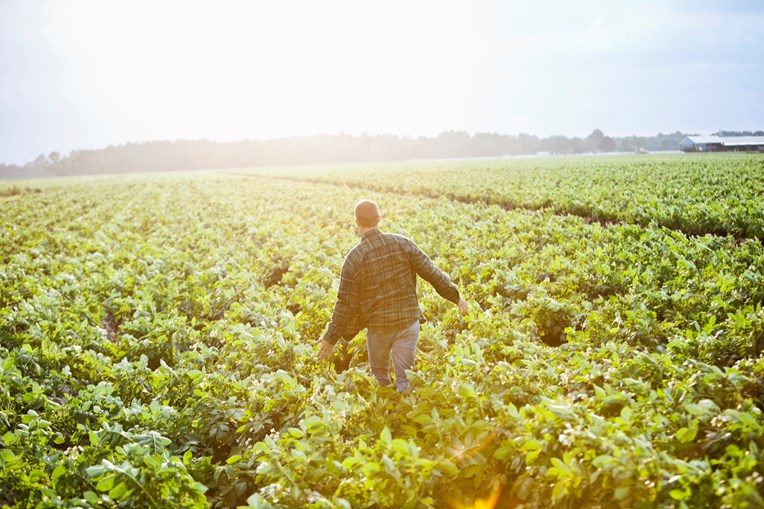Is growing potatoes sustainable and profitable?

By using our key assets and embracing change, potato producers in Scotland can ensure a profitable and sustainable potato sector
Potatoes are an amazingly versatile food. They are an important part of our culture in Scotland, celebrated as ‘neeps and tatties’ on Burns night which this year appropriately coincides with the SAC Association of Potato Producers (SACAPP) Conference on 25 January.
But is growing potatoes sustainable and profitable?
Producers of the crop are under considerable pressure, and many are questioning the viability of potato production during these tough times. Caught between the pressures of inflation and the increasing costs of production on one hand and the understandable desire from customers to get the best value they can on the other, growers are feeling the heat.
The major costs of production: fertiliser, fuel, machinery, and labour have all increased substantially over the past year. Nitrogen fertiliser alone has increased by over 300 per cent in the last two years. Changes of this order require growers to look very carefully at what they are doing and how they are doing it. However, the economics of potato production doesn’t stop at the farm gate, and new research has been assessing the real value of potatoes to the wider economy and its reliance on top-class, efficient and sustainable potato producers.
The pressure on businesses does not just come from the cost of production as the sector is also being asked to become more sustainable and reduce its carbon footprint. Fortunately, the potato crop stands up well to other commodity crops, such as rice, when considering its carbon footprint. But, as we all know, everyone needs to play their part in tackling climate change and potato growing is no exception.
As a sector we need to look first for the ‘win-wins’. Those areas where improvements in sustainability, or reductions in greenhouse gas emissions are good both for the environment and the bottom line. Increased efficiency in the use of fertiliser or reduced carbon-emitting cultivations can reduce costs, reduce emissions, and increase profit.
There is much talk of regenerative agriculture; what this means and how it can be applied to the potato crop. At its most basic it involves looking after the health of the soil to the best of your ability; increasing organic matter in the soil and improving its ability to grow high yielding, high quality potato crops. Another example where environmental sustainability can align with the need to produce crops cost effectively. Growers need to embrace these techniques.
Much of the potato supply chain is based on what could be considered outdated varieties, bred for a different time. Maris Piper (first grown in the 1960s) remains the most widely grown variety and remains a favourite with consumers. It is hugely versatile and can be used as fresh, as well as processing.
However, there are also many problems associated with this variety. It is highly susceptible to the pallida form of Potato Cyst Nematode (something virtually unknown when it was bred with resistance to the then prevalent rostochiensis form). It is also highly susceptible to common scab, which is usually controlled through irrigation, so not ideal where water access and availability is under increasing pressure. Replacing outdated varieties with new, high-yielding, fit-for-purpose, resilient modern varieties will play a major part in ensuring a sustainable potato sector in the future.
This change is underway, but the availability of new and improved breeding techniques is set to revolutionise this change.
In Scotland we have a unique combination of great land and a climate suited to potatoes, skilled growers, and a research base that is second to none. Using these key assets, and by embracing change, we can ensure both a profitable and sustainable potato sector for future generations.
Potato growers need support to access to the latest research and advice on how to tackle these pressures. In my role as lead of the partnership between Scotland’s Rural College (SRUC) and the James Hutton Institute (Scottishpotatoes.org), I am able to help bring research and practice together to drive these changes.
The upcoming SACAPP conference brings together speakers with experience and knowledge to guide growers through these difficult times and provides a forum for discussion on the way forward.
The SAC Association of Potato Producers Conference takes place at the Apex Hotel, Dundee, on Wednesday 25 January. To find out more visit www.sruc.ac.uk/events
by Dr Phil Burgess
Posted by Dr Phil Burgess on 23/01/2023
